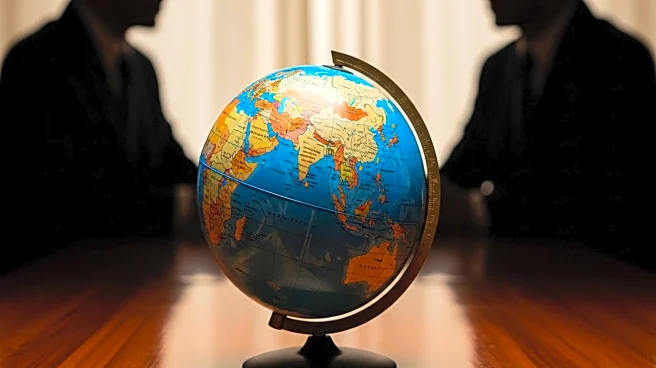What is the story about?
What's Happening?
President Donald Trump hosted Pakistan's Prime Minister, Shehbaz Sharif, at the White House, marking a significant step in the warming relations between the United States and Pakistan. The meeting, which took place on the sidelines of the U.N. General Assembly, focused on strategies to end the Israel-Hamas conflict in Gaza. The U.S.-Pakistan relationship has seen improvements as Trump's ties with Indian Prime Minister Narendra Modi have become strained due to India's increased purchase of discounted Russian oil. In response, Trump has imposed higher tariffs on India. Meanwhile, the U.S. and Pakistan have reached a trade agreement aimed at developing Pakistan's oil reserves and reducing tariffs. During the meeting, Sharif praised Trump for his role in facilitating a ceasefire with India and invited American companies to invest in Pakistan's various sectors.
Why It's Important?
The meeting between President Trump and Prime Minister Sharif highlights a shift in U.S. foreign policy dynamics in South Asia. Strengthening ties with Pakistan could have significant implications for regional stability and U.S. strategic interests, particularly in counterterrorism efforts. The trade agreement between the two nations could boost economic cooperation and provide opportunities for U.S. businesses in Pakistan. However, the strained relationship with India, a key U.S. ally, poses challenges. The increased tariffs on India could impact bilateral trade and diplomatic relations. The evolving U.S.-Pakistan relationship may also influence geopolitical alignments in the region, especially concerning China and Russia's growing influence.
What's Next?
Future developments may include further negotiations between the U.S. and India to resolve trade barriers, as indicated by Trump's recent statements. Additionally, the U.S. may continue to engage with Pakistan on counterterrorism and economic initiatives. The potential for increased U.S. investment in Pakistan's sectors could lead to deeper economic ties. However, the U.S. will need to navigate its relationships with both India and Pakistan carefully to maintain regional stability and its strategic interests.
















